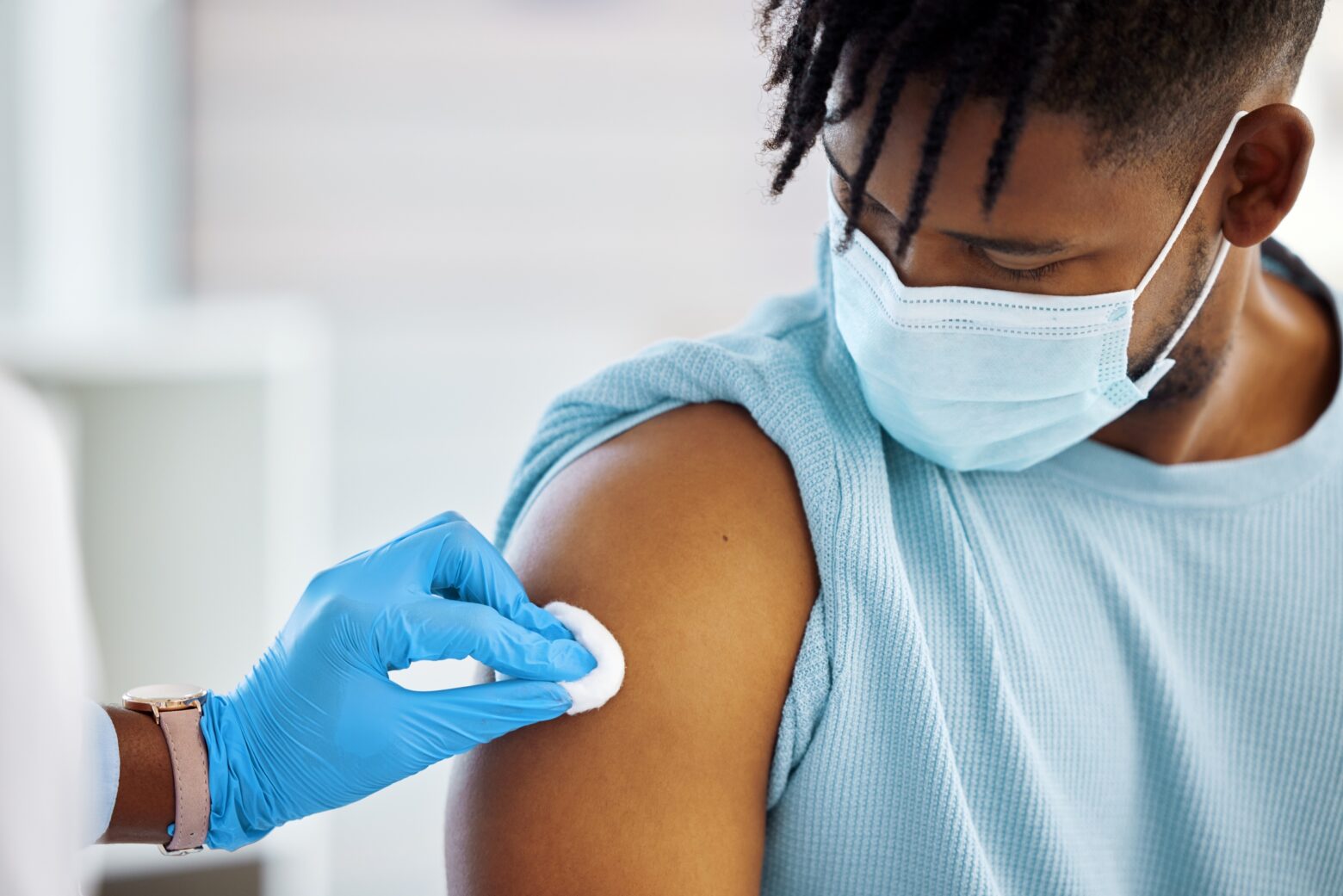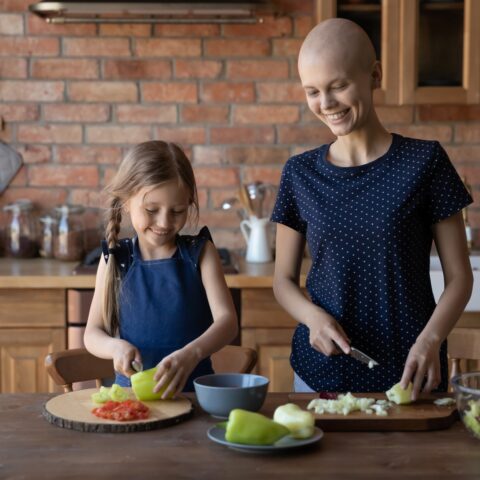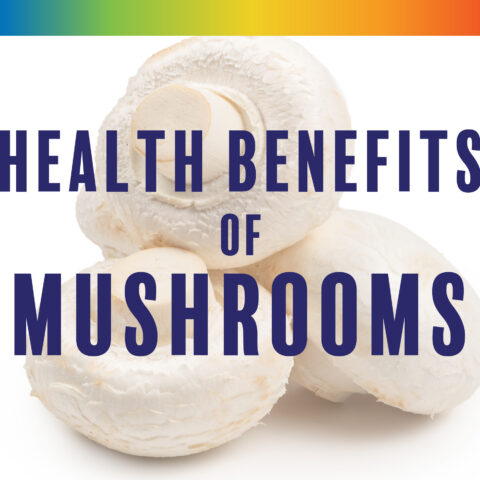Is Diet Comparable to Vaccination?

In March of 2025, an outbreak of measles was peaking in the United States. Experts claimed it was due to declining vaccination coverage in American kindergarteners reaching below the 95% target rate.1 However, Health and Human Services Secretary Robert F. Kennedy Jr. claimed it was due to poor diet, and that increasing vitamin A intake through supplementation would be sufficient to reduce measles deaths.2
Measles is a unique case, as it was declared eliminated from the U.S. in 2000, but saw a resurgence in 2019, coinciding with the rise of anti-vaccination rhetoric.3 The majority of measle infections in 2025 are with unvaccinated children and teenagers,1 and the epicenter of the current outbreak in Texas is the largest in the country since the disease was declared eradicated.4
That being said, many parents have concerns about the potential negative effects of vaccines while also recognizing that poor diet can weaken immunity and lead to chronic health conditions.
So, which route is better at protecting against infection from viruses—especially serious ones like measles? We know that diet can do wonders for individual health and immunity, but we also have data that support the efficacy of vaccinations. Is one method for immune health comparable to the other?
To start the conversation, we need to recognize that The Paleo Diet® is about emulating the diet and habits of our hunter-gatherer ancestors. We know the diseases of civilization (cancer, diabetes, cardiovascular disease, etc.) were virtually non-existent back then. But the number one killer was viral and bacterial infections. So, we know that diet alone isn’t going to prevent all infectious diseases.
Now, let’s explore what immunity is and how it functions in our bodies.
What Is Immunity?
Our immune system has two main parts: an innate immune system and an adaptive immune system. The innate immune system identifies foreign bodies and attacks them. It’s an effective system, but it’s pretty indiscriminate, damaging both the invader and our own bodies. When you feel sick, what you actually feel are the side effects of the innate immune system’s response.
The adaptive immune system learns to recognize specific viruses and bacterial invaders and attacks just them. Antibodies, B cells, and T cells are the key players of the adaptive immune system.
RELATED: The Digestive Immune System
When we say we are “immune” to a disease, what we mean is that our adaptive immune system has learned to recognize the disease and defend against it. When we’re exposed to the virus a second time, the adaptive immune system can usually eradicate it before it multiplies too much and we start feeling symptoms from an innate response.
All that being said, we can still sometimes feel symptoms during that second or third exposure even after we’ve built an immunity to a virus. It’ll often just be far less severe. It’s important to remember that being “immune” doesn’t mean we won’t get infected again. It means our bodies are far more effective at dealing with the infection.
How We Develop Immunity
There is a particular type of innate immune cell called a presenter cell. These cells travel around our bodies, literally chewing things up and presenting them to the adaptive immune system.
What they present is called an antigen or epitope. It is a short protein string that is unique to the virus or thing that they just chewed up. For example, the spiky protein we’ve all seen in pictures of the SARS-CoV-2 virus that causes COVID-19 was a common antigen for the virus. It allows the adaptive immune system to identify the virus.
RELATED: Wheat as a Harmful Dietary Antigen
What’s important to know is that presenter cells don’t just chew up and present viruses. They chew up a lot of things—including parts of our own body—so on top of presenting the antigen, it needs a way to tell the adaptive immune system when what it is presenting is a danger.
As a result, the presenter cell will also present what’s called an adjuvant that tells the adaptive immune system, “This is an issue, do something about it!” Without that adjuvant, the adaptive immune system will learn to ignore the antigen that was presented.
What Is a Vaccine?
There are many types of vaccines, but in general, they contain both an antigen and an adjuvant. The antigen is created by scientists. Immunologists have gotten very good at identifying unique antigens in viruses. This way, they can inject part of the virus, but not the living (and therefore dangerous) whole virus.
It is critical that the antigen is also injected with a powerful adjuvant. Without the adjuvant, the immune system will identify the antigen as “not dangerous” and become less able to defend against the virus. So, it is essential that the vaccine not only present a unique antigen, but also tell the immune system that it needs to do something about it. This is why people sometimes feel sick after getting vaccinated.
How Are Vaccines and Natural Immunization Different?
There are several crucial differences between vaccines and natural immunization. When a presenter cell encounters a virus and chews it up, it will present multiple antigens to the adaptive immune system. By contrast, some vaccinations (particularly older vaccines) contain only one or a few antigens.
So, if the virus undergoes a mutation that changes the antigen selected for the vaccine, we lose our immunity. This is less likely with “natural” immunity because many antigens would have to mutate to fully lose immunity.
Fortunately, scientists have learned this and many modern vaccines use a large portion of the dead virus or bacteria so that multiple antigens can be identified.
In the case of the COVID mRNA vaccine, this new type of vaccine gets our own cells to produce the specific antigen. But only the spike S1 protein antigen is produced, so a mutation in that spike protein would limit the effectiveness of the vaccine.5
Having many antigens also strengthens the immune response to a virus. Each T cell and antibody is unique to a single antigen. So again, with some vaccines only one or a few unique T cell and antibody types will be created. Natural immunity will create many T cell and antibody types capable of mounting a stronger defense.
Another important difference is that when presenter cells present an antigen to the adaptive immune system during natural immunity, the adjuvant is presented only to the same adaptive immune cells. It is highly targeted. This is not the case with adjuvants in vaccines. A powerful adjuvant has to be used, but it is not specifically presented by a presenter cell. This leads to the potential for side effects. One such side-effect is a small increased risk of autoimmune disease from some adjuvants.6,7 This is where the immune system is accidentally primed to identify itself as an invader and attack our own bodies.
It is important to know that immunologists are very aware of these risks and are very careful in selecting their adjuvants. So this is a low risk. Further, newer vaccines that use most of the virus have the benefit of containing natural adjuvants that will be presented by presenter cells.
There is a very weak association between aluminum adjuvants and autism.8 Aluminum salts were mainly used as adjuvants in the 30s, 40s, and 50s. While aluminum adjuvants are still used and heavily debated,9–12 more modern adjuvants are much better at targeting the immune system and are well tested for safety.
How Can Diet Affect Immune Health?
Diet is one of several factors that can affect immunity. Age, environment, weight, stress, sleep, and genetics can all play a part in how well your immune system responds to infection and disease.13,14 However, eating a well-balanced diet can improve the health of all cells, not just immune cells.
Though some nutrients have been found to strengthen immunity, it’s healthier to consume a variety of nutrient-dense foods than to focus on consuming one food with a high amount of a particular nutrient. Eating ultra-processed foods or not having enough variety in diet may also lead to nutrient deficiencies, which can lower a person’s immune response.
More importantly, a heavily processed Western diet has been shown to elevate chronic inflammation in our bodies. This means that the immune system is constantly activated. When that happens, it is less effective at fighting viruses. Research on COVID showed that people with pre-existing inflammation were at far greater risk when they contracted the disease. 15–17
The Paleo Diet is an excellent way to eat a variety of nutrient-dense, minimally processed foods that can contribute to overall health. Not only can it strengthen immune cells, but it was proven in a 2022 meta-analysis to reduce overall biomarkers of chronic disease better than DASH, Mediterranean, keto, or plant based diets. In fact, The Paleo Diet beat all other diets in its ability to reduce chronic inflammation, which sets the body up to better handle infections.
RELATED: Compare The Paleo Diet to Other Diets
Remember that diet is just one piece of the puzzle. Things like exercising, not smoking or drinking in excess, getting a good night’s sleep, managing stress, and maintaining good personal hygiene are also helpful in increasing immune health.
What About Supplements?
As mentioned above, certain isolated nutrients are known to bolster the immune response. For instance, vitamin A and zinc are crucial for regulating cell division and therefore are important nutrients to have stored for a strong immune response.18 In the case of measles, health organizations may recommend a low dose of vitamin A in patients who are deficient to potentially reduce the severity of symptoms.1
However, some nutrients can have multiple immunological responses in the body, such as vitamin E acting as an antioxidant while also potentially interacting with transport proteins and enzymes.18 In addition to this, nutrients like vitamins A and E are fat soluble, which means they can’t be excreted and are stored in fatty tissues in the body, compared to water-soluble vitamins which are excreted from the body and not easily stored.19,20 When fat-soluble vitamins are taken in excess and build up in the body, toxicity can occur.
RELATED: Do You Need to Supplement with Vitamin D?
Though Robert F. Kennedy Jr. was not wrong that those infected with measles may benefit from vitamin A, it is not meant to be a treatment for measles itself and may lead to toxicity. Since Kennedy’s recommendation to take vitamin A, American poison control centers in 2025 have seen a 39% increase in calls regarding pediatric vitamin A exposure compared to the year before.21
The Paleo Diet believes that the best way to get nutrients is through consumption of whole or minimally processed foods over supplementation, but we also acknowledge that supplements may be beneficial for those at risk of nutrient deficiency or who may not be able to eat a varied diet—such as low-income families, infants, and those who are chronically and critically ill.13
Nothing Is without Risk
Remember that no medication is without side effects. Generally, the side effects are worth the benefits, but even with something as simple as over-the-counter pain killers, there are a very small number of people who will have severe and potentially even deadly reactions.
Vaccines are no different. However, if the small number of cases where people have severe reactions to vaccines is the litmus test to stop using them, then we’d have to stop using literally all medication.
Most of the dangers being discussed today about vaccines are misinformation. But likewise, the claims that vaccines have no side effects and are more powerful than natural immunity are also misinformation.
With any medication, we need to be aware of the side effects and do a cost-benefit assessment. For serious conditions like measles and polio, we argue that the benefits of vaccination far outweigh the potential risks. When it comes to vaccinations for something like seasonal flu, you need to assess your own comfort level.
Takeaways
- Building immunity (either through vaccination or healthy habits) does not mean you will never get infected again. It means your body is better prepared to handle infection.
- Vaccines, like any medication or treatment, come with the risk of side effects. This does not necessarily mean we should stop using them.
- Natural immunity provides the chance for the body to strengthen itself against a higher number of antigens, but with some severe diseases, the risks associated with developing natural immunity are far more dangerous than the potential risks of vaccination.
- Diet is one of many factors of a healthy lifestyle that can help to improve immunity.
- Supplements may be useful for those who have severe nutrient deficiencies, but eating a whole-food and minimally processed diet like The Paleo Diet should be prioritized.
References
- Measles Cases and Outbreaks 2025. https://www.cdc.gov/measles/data-research/index.html (accessed May 21, 2025).
- Kekatos M. RFK Jr. claims measles can be treated with vitamin A, linked to poor diet. Here’s what science says 2025. https://abcnews.go.com/Health/rfk-jr-claims-measles-treated-vitamin-linked-poor/story?id=119713193 (accessed May 21, 2025).
- Benecke O, DeYoung SE. Anti-Vaccine Decision-Making and Measles Resurgence in the United States. Glob Pediatr Heal 2019;6:2333794X19862949. https://doi.org/10.1177/2333794×19862949.
- Simpson S. Texas’ measles outbreak is nation’s largest since 2000 2025. https://www.texastribune.org/2025/05/08/texas-measles-spread-oklahoma-new-mexico/ (accessed May 21, 2025).
- Angrand L, Masson J-D, Rubio-Casillas A, Nosten-Bertrand M, Crépeaux G. Inflammation and Autophagy: A Convergent Point between Autism Spectrum Disorder (ASD)-Related Genetic and Environmental Factors: Focus on Aluminum Adjuvants. Toxics 2022;10:518. https://doi.org/10.3390/toxics10090518.
- Seida I, Alrais M, Seida R, Alwani A, Kiyak Z, Elsalti A, et al. Autoimmune/inflammatory syndrome induced by adjuvants (ASIA): past, present, and future implications. Clin Exp Immunol 2023;213:87–101. https://doi.org/10.1093/cei/uxad033.
- Guimarães LE, Baker B, Perricone C, Shoenfeld Y. Vaccines, adjuvants and autoimmunity. Pharmacol Res 2015;100:190–209. https://doi.org/10.1016/j.phrs.2015.08.003.
- Tomljenovic L, Shaw CA. Do aluminum vaccine adjuvants contribute to the rising prevalence of autism? J Inorg Biochem 2011;105:1489–99. https://doi.org/10.1016/j.jinorgbio.2011.08.008.
- Rijkers GT, Weterings N, Obregon-Henao A, Lepolder M, Dutt TS, Overveld FJ van, et al. Antigen Presentation of mRNA-Based and Virus-Vectored SARS-CoV-2 Vaccines. Vaccines 2021;9:848. https://doi.org/10.3390/vaccines9080848.
- Boretti A. Reviewing the association between aluminum adjuvants in the vaccines and autism spectrum disorder. J Trace Elem Med Biol 2021;66:126764. https://doi.org/10.1016/j.jtemb.2021.126764.
- Principi N, Esposito S. Aluminum in vaccines: Does it create a safety problem? Vaccine 2018;36:5825–31. https://doi.org/10.1016/j.vaccine.2018.08.036.
- Ćirović A, Ćirović A, Nikolić D, Ivanovski A, Ivanovski P. The adjuvant aluminum fate – Metabolic tale based on the basics of chemistry and biochemistry. J Trace Elem Med Biol 2021;68:126822. https://doi.org/10.1016/j.jtemb.2021.126822.
- Nutrition and Immunity n.d. https://nutritionsource.hsph.harvard.edu/nutrition-and-immunity/ (accessed May 21, 2025).
- Dahmer MK, Cornell T, Quasney MW. Genetic and epigenetic factors in the regulation of the immune response. Curr Opin Pediatr 2016;28:281–6. https://doi.org/10.1097/mop.0000000000000356.
- Meftahi GH, Jangravi Z, Sahraei H, Bahari Z. The possible pathophysiology mechanism of cytokine storm in elderly adults with COVID-19 infection: the contribution of “inflame-aging.” Inflamm Res 2020;69:825–39. https://doi.org/10.1007/s00011-020-01372-8.
- Akbar AN, Gilroy DW. Aging immunity may exacerbate COVID-19. Science 2020;369:256–7. https://doi.org/10.1126/science.abb0762.
- Ferrucci L, Fabbri E. Inflammageing: chronic inflammation in ageing, cardiovascular disease, and frailty. Nat Rev Cardiol 2018;15:505–22. https://doi.org/10.1038/s41569-018-0064-2.
- Childs CE, Calder PC, Miles EA. Diet and Immune Function. Nutrients 2019;11:1933. https://doi.org/10.3390/nu11081933.
- Jialal. I, Reddy P. Biochemistry, Fat Soluble Vitamins – StatPearls 2022. https://www.ncbi.nlm.nih.gov/books/NBK534869/ (accessed May 21, 2025).
- Lykstad J, Sharma S. Biochemistry, Water Soluble Vitamins – StatPearls n.d. https://www.ncbi.nlm.nih.gov/books/NBK538510/ (accessed May 21, 2025).
- Dalli K. Poison centers see jump in kids’ vitamin A cases during measles outbreak 2025. https://www.consumeraffairs.com/news/poison-centers-see-jump-in-kids-vitamin-a-cases-during-measles-outbreak-050625.html (accessed May 21, 2025).




